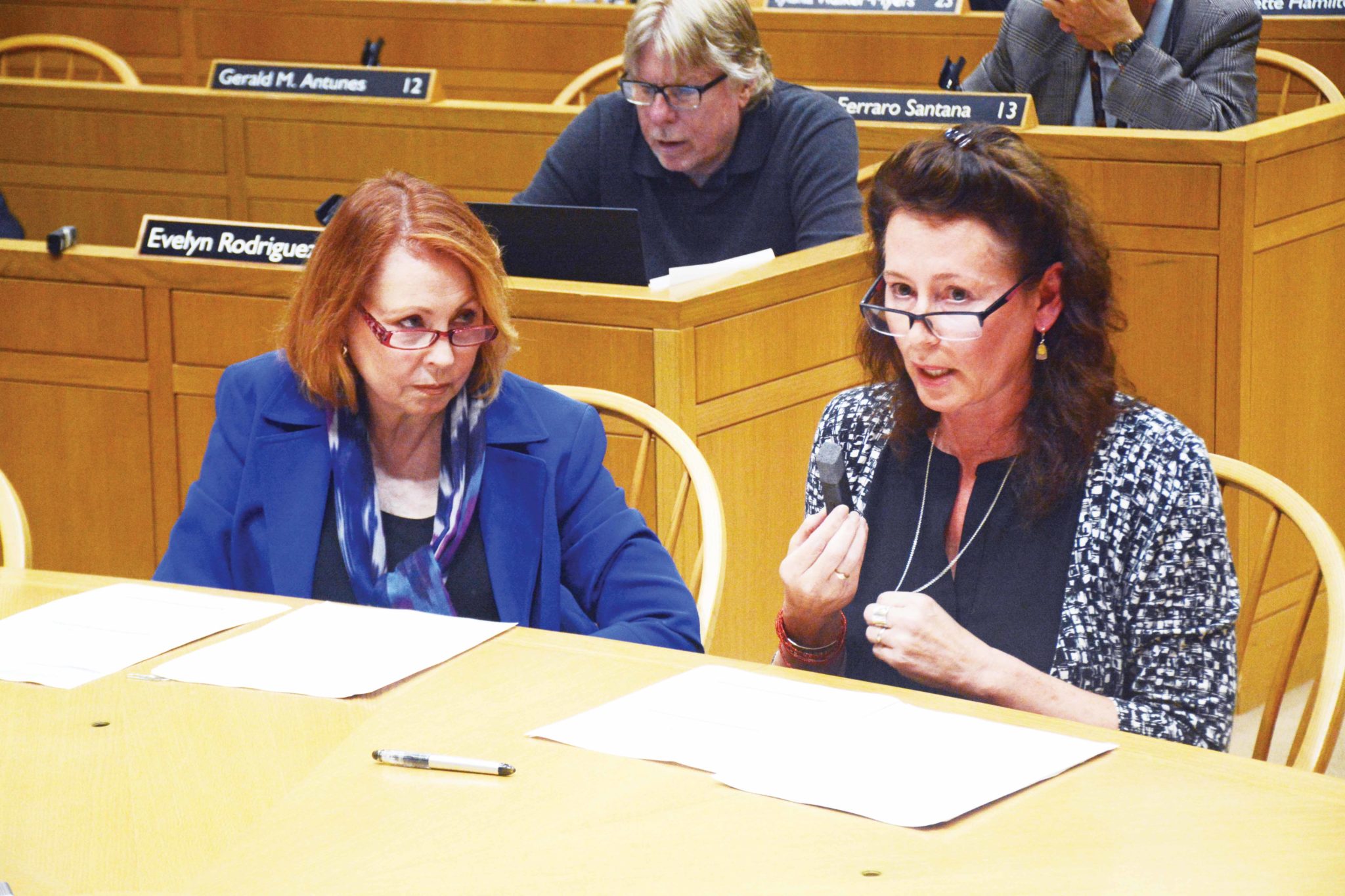
Passions boiled over in City Hall’s aldermanic chamber on Wednesday night as residents and alders debated the impact that a drug clinic run by the APT Foundation has made on its surroundings and on the city’s opioid epidemic, in the wake of the day last month when over 100 people were believed to have overdosed in New Haven.
The Human Services Committee of the Board of Alders held a public hearing focused on the addiction-treatment services provided by the APT Foundation, which operates five locations in the New Haven–Bridgeport area, including one that is close to a New Haven school. The second half of the hearing was dedicated to considering proposals from the New Haven community to address the city’s drug epidemic. More than 100 city residents attended the hearing, which erupted into loud applause and angry murmuring at several points as alders and residents debated the location and role of the APT clinic in combating drug use in New Haven.
“[APT’s patients] are people who deserve our compassion and respect,” said Benjamin Howell, a New Haven resident and researcher at the Yale School of Medicine. “[Treatment is] not always pretty, but it saves lives.”
The APT Foundation provides a variety of services to patients struggling with addiction. According to the foundation’s website, its philosophy centers on the belief that “addiction is a disease of the mind, body, and spirit, affecting a person’s social and emotional functioning, and that treatment must address all of these needs.”
As opposed to many other clinics around the country, the APT Foundation treats patients from the moment they arrive at the clinic, even if they still have drugs in their system, rather than requiring patients to wait for several weeks before receiving treatment. The foundation accepts payments from patients on Medicare, which is also rare among opioid addiction treatment clinics.
However, several residents and alders objected to the location of one of APT’s branches on Congress Avenue, which is across from the K-12 John C. Daniels School in Ward 3.
At the meeting, Ward 4 Alder Evelyn Rodriguez said she has seen patients exiting the clinic, apparently still under the influence of drugs or medication.
“Our school children should not see those images,” Rodriguez said. “They do not deserve it.”
New Haven resident Maria Rodriguez, who lives two blocks from the facility, described how she was playing in her yard with her two young granddaughters when one of the girls found a needle and asked what it was.
Ward 7 Alder Abby Roth ’90 LAW ’94 also expressed concern that many patients leaving the clinic go to the downtown area, which she said hurts businesses downtown and contributes to some of her constituents’ decision to avoid the New Haven Green with their children.
Later, other attendees objected to the tone of the previous speakers, denouncing their remarks as indicative of a “not in my backyard” attitude and arguing that they evinced a lack of compassion for the clinic’s patients.
“I’m really, really disappointed by what I’ve heard tonight,” New Haven resident Gregg Gonsalves ’11 GRD ’17 said to applause from roughly half of the audience.
In response to similar criticism from several speakers, Roth apologized that her remarks might have come across as such, and Ward 27 Alder Richard Furlow clarified that opening statements from particular alders did not reflect the opinions of the committee as a whole.
According to testimony from APT Foundation CEO Lynn Madden and medical director Mary Ellen Savage, the foundation has tried to adapt in recent years in response to concerns from the city while working to navigate with budgetary restrictions.
Madden said that the clinic on Congress Avenue has changed its hours so that patients’ arrivals and departures do not conflict with school drop-off and pickup times. Moreover, the clinic has opened branches in West Haven and North Haven, to which it has transferred hundreds of patients who previously came to downtown New Haven.
Several alders expressed frustration that cities and towns surrounding New Haven do not provide adequate services to their residents struggling with addiction, prompting many patients to come to New Haven instead.
“I would rather lend a hand to people who need it the most than hide in cowardice,” Ward 1 Alder Haci Catalbasoglu ’19 said. “If the suburbs don’t want to take care of their people, New Haven will never turn her back on people who need her help.”
The APT Foundation was founded in 1970.
Nathalie Bussemaker | nathalie.bussemaker@yale.edu
Interested in getting more news about New Haven? Join our newsletter!







